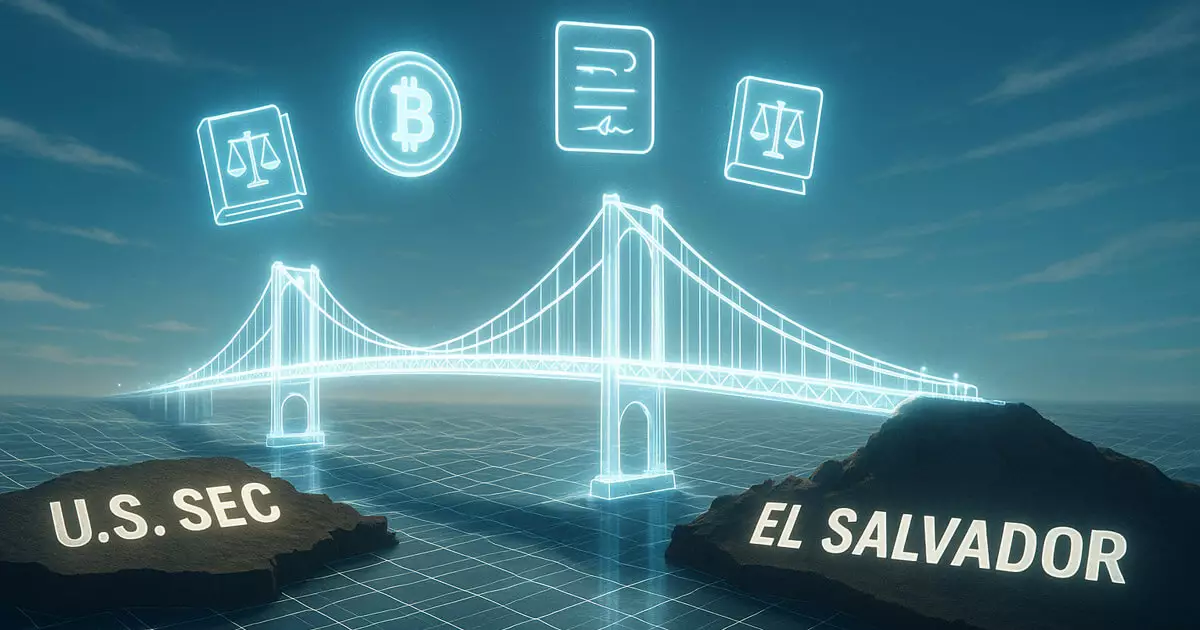In a groundbreaking move that could reshape the landscape of digital asset oversight, the US Securities and Exchange Commission (SEC) is eyeing an innovative partnership with El Salvador’s National Commission of Digital Assets (CNAD). This collaboration marks a pivotal shift in how regulators can engage with burgeoning crypto markets, demonstrating a willingness to transcend borders and embrace fresh ideas. Contrary to the often stagnant and cautious approach taken by some regulatory bodies, this initiative signals a refreshing change, potentially opening the gates to a more dynamic regulatory environment that respects both innovation and security.
Breathtaking Potential of a Regulatory Sandbox
Central to this budding partnership is the concept of a regulatory sandbox—a controlled environment where experimentation with digital tokens can occur under real-world conditions. The SEC’s consideration to launch such a platform is not merely an exercise in progressivism; it is a strategic move aimed at collecting vital empirical data regarding tokenization models. By examining real estate tokenization and various fundraising structures within this sandbox, the SEC stands to gain invaluable insights about scaling the market while prioritizing investor protection. It’s an ambitious plan that draws attention to the practicality of ensuring that regulations can adapt to fast-evolving technologies.
Grounded Initiatives with High Aspirations
The SEC’s pilot programs indicate a proactive approach rather than a reactive one. With an estimated entry cost of just $10,000 per project, these initiatives are designed to empower smaller market participants and foster inclusion in the digital asset space. In one pilot, a US real estate broker will interact with a Salvadoran tokenization firm to facilitate the acquisition of tokenized local property. The second initiative revolves around a US-licensed broker facilitating token-based fundraising for small businesses, also collaborating with the CNAD. Such arrangements not only validate the real-world applicability of digital tokens but also highlight the potential for cross-border synergies that can invigorate regional economies.
A Political Shift in Regulatory Philosophy
The SEC’s new direction reflects the evolving political landscape surrounding cryptocurrency. Since the beginning of the Trump administration’s second term, there has been a notable pivot towards a more crypto-friendly regulatory approach. By reevaluating antiquated regulations and reducing burdensome enforcement actions, the SEC is positioning itself as a guardian of innovation rather than a stumbling block. This approach is crucial in a world where digital assets are not only reshaping financial transactions but are also redefining concepts of ownership and investment.
Glimmers of Hope for the Future of Crypto Regulation
As the SEC embarks on this ambitious partnership with El Salvador, what resonates most is the promise of a more adaptable regulatory framework. By drawing lessons from live experiments, the commission aims to create policies that foster innovation while ensuring investor safety—a delicate balancing act that has eluded many. This evolution in regulatory mindset suggests that the SEC is not content to sit back and watch from the sidelines; it seeks to dive deep into this digital revolution. However, it remains to be seen whether this bold venture will spur sustainable change or merely serve as a temporary glimpse of progress in a notoriously fickle landscape.















Leave a Reply